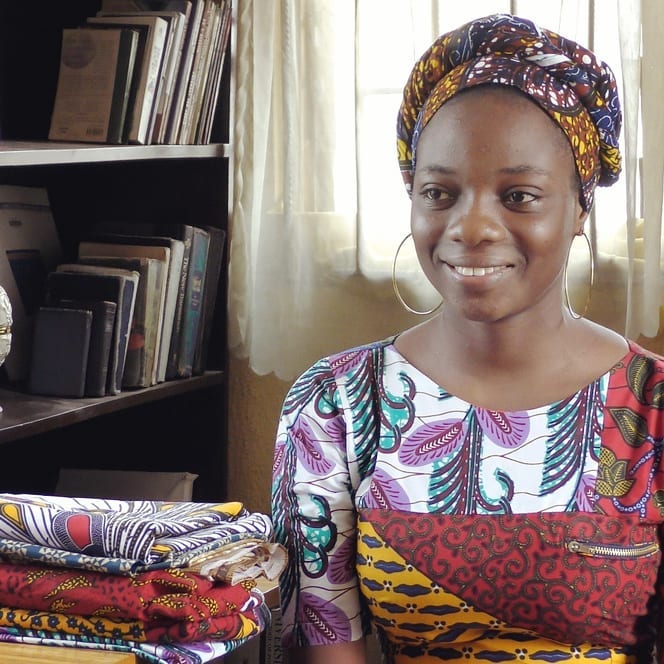The world is rapidly changing. Who ever thought that Europe could experience such a sad event – Russia-Ukraine war, in the 21st century. No one truly knows the future. No place is truly paradise, except we work actively towards creating it every single minute. Exactly now, is it so important to begin to look deeper into more economic partnerships that goes beyond political and high-level global economics. Small businesses, social impact investors, medium sized companies around the world can begin to create a stronger network where their voices may one day count in global decision making.
In this article, I want to explore the phenomenon of the emerging market and also invite you to think about your involvement. Before we delve into the topic for this article, it is important to define some very crucial terms and also critically open up some questions.
What is an emerging market?
If you follow Wikipedia definition – An emerging market (or an emerging country or an emerging economy) is a market that has some characteristics of a developed market, but does not fully meet its standards, one would have to understand the standards of the developed market first. What is considered developed and under-developed? Who sets these standards and definitions? Towards what measurements are these set? Well those are questions for another article.
Basically, an emerging market is right in between the defined developed market or economy and the underdeveloped economy – a kind of transitional phase or should we say a market in limbo? These emerging economies are said to have a high productivity at a very low income rate.
Nigeria is an emerging market according to diverse classification sources
The term emerging market to define a nation’s economy is widely in use by international entities like the world bank, international monetary fund and diverse institutions in the global financial market and stock market. This term and its definition also sets the classification for many international social organisations. There are however still discrepancies in which country is accepted to be emerging or now, depending on the classification source or instrument. So depending on the source of classification you rely on, you will find Nigeria to be an emerging market. Factors such as the ease for foreign investors to trade in the stock market, to invest by bringing in capital and being able to take out the revenues, all play a significant role in defining if it is an emerging market or not.
Emerging markets are still positioned as underdeveloped
One characteristic of emerging markets is the low income. One question though is that even if there is a high income rate in developed countries, this does not express the high expenditure rate that accompanies it, nor does it tell us about the phycological, cultural or social quality of life of the people. The Kingdom of Bhutan, a country in the Himalayas, is a country that tries to integrate what is called the GNH (Gross National Happiness) rather than solely just his country by its GDP (Gross domestic product). The Gross National Happiness is a term coined by His Majesty the Fourth King of Bhutan, Jigme Singye Wangchuck in the 1970s.
According to the SDG, the GNH concept implies that sustainable development should take a holistic approach towards notions of progress and give equal importance to non-economic aspects of wellbeing. Should emerging markets and investors looking at these markets or economies not think in line with these values? Global financial structures see markets as economics to be separated from the actual life happiness and standard of the people. If standards are classified or considered, then there should be a strict capital relevant measurement applied. Often this approach is abstract from the true feelings of the people.
Learning from experiences of developed economies
We should begin to take the opportunity to reverse mistakes made by the developed economies seriously. Emerging economies have the opportunity to learn from the experience of the developed economy. How did industrialization bring about positive change? What negative impact and footprint has industrialisation left behind? See west-Europe’s dependency on Russian Oil and Gas, how does this affect impactful anti-war approaches? Can innovation genius be channeled towards more social good or should it be fostered towards the invention of weapons of mass destruction?
How should external institutions in all spheres of life from health, education, tech, energy, finance etc, whose governing bodies or lead actors, which are not democratically elected by the people influence individual country’s politics and the global politics? How can decentralisation strategies become more efficient for economie sto be truly independent and self sustainable? There are countless questions open to answer. This is an opportunity for emerging countries to create their own vision board and strategy for the uncertain future ahead.
Income discrepancy is disrupting emerging economies
Now with digital technology and the ability to further education from Nigeria using online platforms, many Nigerian professionals are gaining extraordinary competence. But they do not have the environment to fully explore ethier ability and serve. So often the idea to relocate emerges. For example doctors earning far less in Nigeria than in the USA, the results are clear. Over the past decades, many Nigerian doctors, nurses and healthcare professionals have relocated to the USA leading to massive brain drain in Nigeria.
Skilled professionals search for high income.
Opportunity 1 – Investment in affordable services for export
If skilled professionals in emerging markets earn lower than their counterparts in developed countries, a new digital service economy can emerge. Since the developed markets have a very high income rate, there are many services that skilled professionals in places like Nigeria can render from their country location at a cheaper fee thanks to the internet. Social impact investors have to assist to develop this infrastructure and platforms on ground. These professionals currently offer their services via already large established platforms, again shifting equity to the status quo. What if local investors can establish a series of such platforms with the ownership equity remaining to a large proportion within the emerging market?
Opportunity 2 – Entrepreneurship
Think of it, what if these well skilled professionals could begin to venture into entrepreneurship rather than striving towards best employee status. I know it makes life easy to be rest assured to get your fixed monthly pay by showing up at work and doing your best. But for the general economic development of your country, every single professional has to begin to think about equity. Equity in the sense of building, developing new workspaces, providing new services, investing in new approaches and technology. For this to happen, there has to be a strong evolving social impact investment ecosystem that would enable these bright minds to become inventors.
Opportunity 3 – Investment in energy efficiency for emerging markets is key
Simply look at our analysis in Joadre journal – FOCUS, of the cost of fueling one’s life in Nigeria as an entrepreneur with a family, you will be amazed. Literally over 50% of one’s income goes to energy utility. This shows that the energy dilemma is one area of investment for the market. If these sectors can evolve, it would open the gateway from many other sectors to grow out of underdevelopment.
Understanding the cultural, society dynamic
But before you venture into an emerging market it is important to understand the socio-cultural dynamics. The entrepreneurs and consumers on ground do not play solely by the rules of the developed markets or global financial institutions. They act in real time, therefore their own social relationships and dynamics influence the decision making as well as access. It starts with little things like supply chain reliance, public relation to networking and government legislations.
Your own standards, but listen to the merging market speak
You as an investor can come in with your own set of standards, that may work in your origin economy. These standards have to be stored in a safe space first and you have to learn the dynamics of the emerging market first to see how you can readapt your structures and standards. As much as we tend to rely on statistical data and analysis to make decisions, it is important to meet people where they are and integrate their perspectives into the decision making process.
We at Joadre are here to help
At Joadre, we offer a 2-day intensive program, that helps social impact entrepreneurs and investors readapt their ideas to meet the new market. Apart from us, many countries offer a trade mission trip to these emerging markets or organis what they call an export day or trade fair. This is a first step to peep into the dynamics of the market. However, if your visit revolves around high-level mediated meetings, you might not have a glimpse into the real market.
Integrate sustainable approach.
Far more important is also the idea of sustainability. We now know that over consumption of sugary products combined with bad fat leads to health problems. Many companies in the developed economy have made a fortune using this nutrition combination in the FMCG goods. Is it then appropriate to explore this same approach as a nutrition company looking to invest in an emerging market? Can you become that courageous company who employs a humane approach and still work towards generating income? This is true innovation. Innovation that serves humanity.
Set your intentions towards sustainability
At the end, you will see that venturing into what is called today emerging markets is a beautiful way to bring more sustainability into our global ecosystem. We have seen the mistakes and the great works in developed markets. Therefore, we can choose to create an investment approach that makes a positive impact. Key is to respect the dynamics, adapt your approach and think sustainable. Do not be the teacher, be a seeker. These are crucial steps – finding the right partners beforehand, getting business guidance, engaging a pilot ecosystem to readapt our product, dedicate finance and make time to engage fully in your first move in an emerging market.
Get our app, stay in touch and lets help you develop your ideas
Still with the intention to provide more tools for you, we created our tailored all-in-one app to offer up-to-date knowledge, provide exposure for social entrepreneurs and offer coaching services. Get the app (Android version) here and for IOS users, a webapp version and IOS version is on its way, sign up for our newsletter here to know when it’s out and get the consistent ressources via email. If you need templates to develop your ideas, you can check our Joadre Tools. If you want to contact us, use our contact form or consult us through the app.
Thank you for reading to the end.
Cheers
Joana




